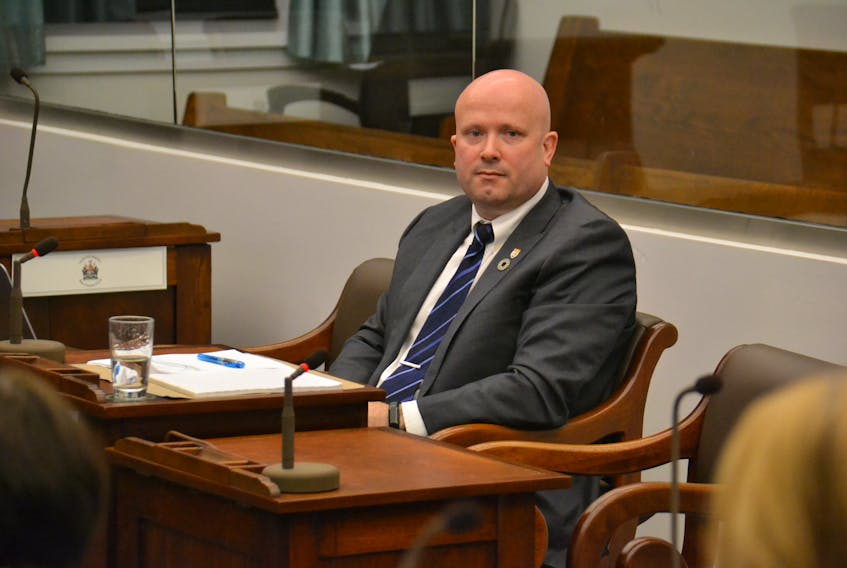CHARLOTTETOWN, P.E.I. — A top economist with the Department of Finance believes P.E.I.’s current social safety net already has many similarities to a basic income guarantee.
Nigel Burns, director of economic statistics and federal fiscal relations with the department, spoke before the standing committee on poverty in Charlottetown last week.
Burns addressed the concept of a negative income tax, a form of basic income guarantee that would give a government payment to all individuals who earn below a certain amount, regardless of whether they work or not. Individuals who earn above this amount would pay income taxes.
Burns pointed to social welfare programs, such as social assistance or disability support programs, and federal programs such as the Guaranteed Income Supplement for seniors or the Canada Child Benefit, as examples of current programs that provide a minimum income.
"Some might argue that we're closer to a negative income tax type of system than we might otherwise think," Burns said.
Burns suggested the debate over establishing a basic income guarantee pilot in P.E.I. is less about creating an entirely new social welfare program and more about whether existing programs provide enough support for people living in poverty or the working poor.
"Fundamentally, it's about the adequacy of the basic social supports that we have," Burns said in an interview.
"Fundamentally, it's about the adequacy of the basic social supports that we have."
The standing committee has been tasked with providing costed recommendations about a basic income guarantee pilot on P.E.I., as well as what should be considered a living wage for P.E.I., by July 2020.
Green MLA Hannah Bell, a vocal supporter of a basic income pilot on P.E.I., asked Burns if a tax bracket could be created based on the market basket measure, the measure of a poverty line used by the federal government. Bell said this would set the lowest tax bracket around $20,000 for individuals.
Burns said existing tax programs, including the low-income tax reduction, currently set at $18,000, already targets lower-income individuals.
"You could design something that would achieve that end," Burns said.
Burns said his department could examine how much it would cost the province to increase the low-income tax reduction to $20,000 and report back to the committee.
Liberal MLA Heath MacDonald asked Burns if he could model the effects that a change in the low-income tax reduction would have on other programs, from both the federal and provincial governments.
Burns’ answer indicated that this would be difficult.
"There's a number of programs jockeying around here that (are) potentially jamming up on each other," Burns said.
Burns suggested consideration should be given of the effect a basic income guarantee would have on the labour force. A rigid “toggle switch” could provide a disincentive to work.
“If you're right on that line or close to it, a small increase in earned income could potentially trigger a fairly sizeable reduction in benefits," Burns said.
Burns suggested phased-in eligibility may be a better option.
On Wednesday, a study focused on the Ontario government’s basic income pilot, released by McMaster University researchers, suggested the program did not significantly discourage participants from working. The research found that three quarters of people, who were employed before joining the pilot, continued to work while receiving the benefit.
The study, which surveyed 200 participants of the pilot program in Hamilton-Brantford, also found that 80 per cent said their general health and mental health had improved after the pilot.
Seventy-eight per cent felt less angry during the pilot.
The Ontario basic income pilot was cancelled in 2018 after a change in government.









